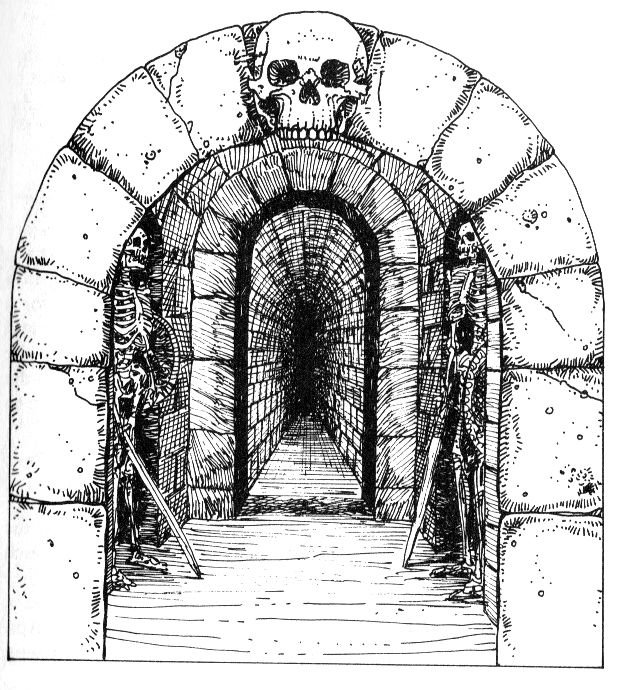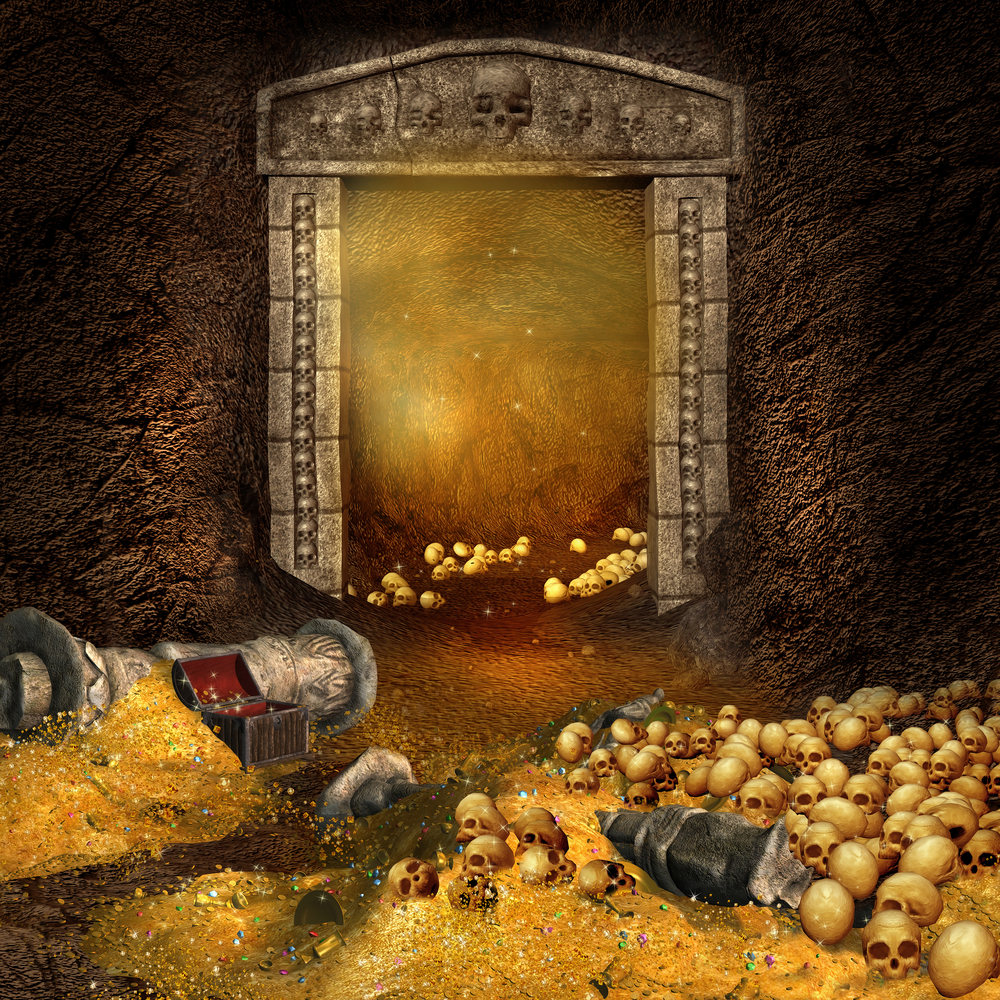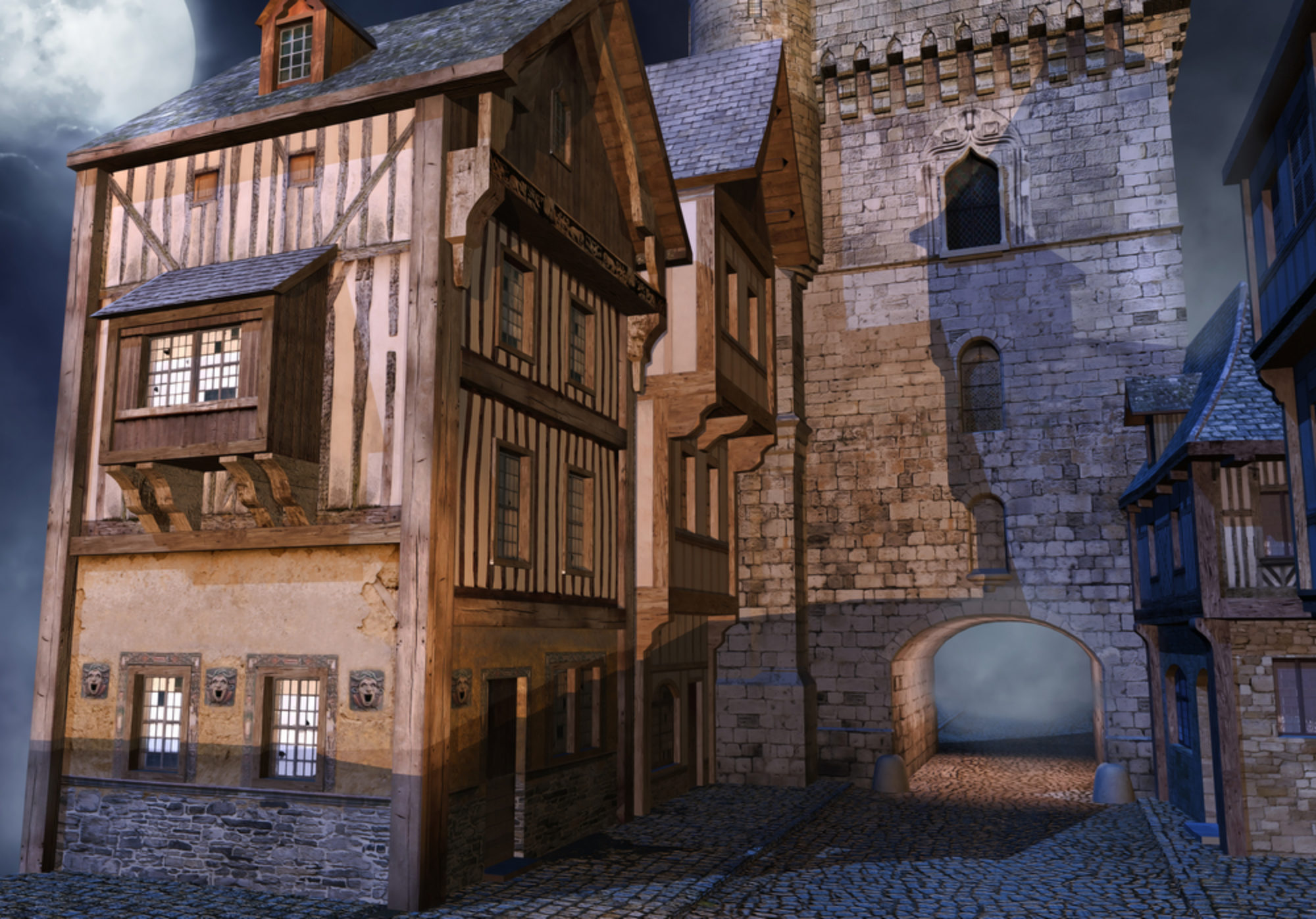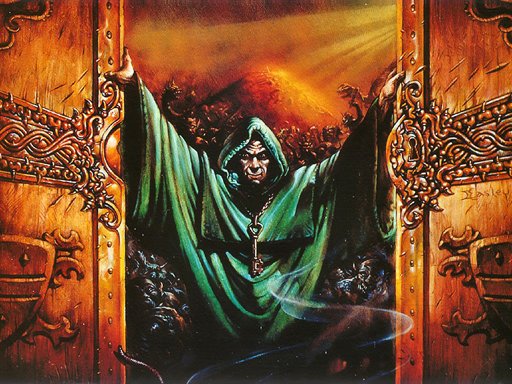Keys in Dungeons and Dragons are underutilized in my opinion. They are a minor treasure which can be found along the travels. These keys could open up special areas of a dungeon not otherwise accessible. They can be used to gain access to treasures and to cause magical portals to open. They can also provide the all important exit to a dungeon.
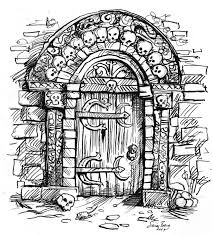
Keys in Dungeons and Dragons can be treasure
The keys themselves may have value. Keys are often made from different metals. Some are adorned with gems. Sometimes a key made from a specific metal is necessary to open one door while one of another metal will cause some deadly trap to be set off. Keys made of gold, platinum and silver are often used for such purposes. Perhaps some riddle or clue along the way will indicate which key is the correct one.
Some possible treasure keys might include:
- A key made of platinum
- A key made of gold and adorned with gemstones at the handle
- A key made of silver or electrum or even copper
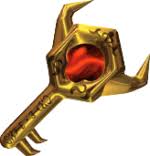
Keys in Dungeons and Dragons to the exit
Sometimes adventurers find their path to the surface blocked by enemies or by collapse of certain areas of the dungeon. Falling stone blocks may prevent egress from the dungeon. Sometimes shifting passages may prevent retreat. Finding another way out of the dungeon may be the “key” to survival. Such keys may be hard to find. Or they may be open and obvious. Such keys might also be guarded by monsters or deadly traps. Or perhaps the boss of the dungeon wears it around his neck as in the opening image for this article.
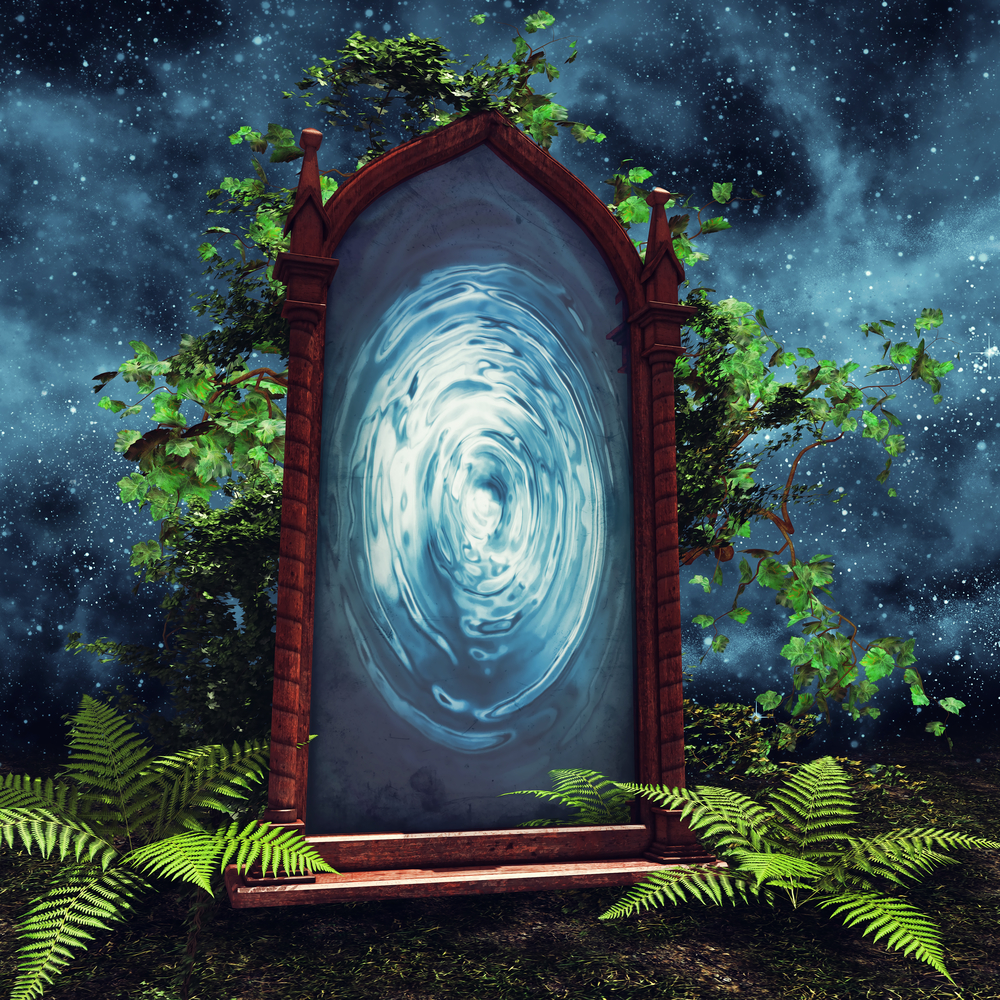
Magical Portals sometimes require keys in Dungeons and Dragons
Sometimes the adventurers may come across a magical portal in their travels. But they lack the knowledge of how to use it. Perhaps a key is necessary in order to travel through such a portal. Such keys might be closely guarded as a valuable treasure or artifact. Such a key might have magical properties itself.
Such keys might:
- Allow travel to other planes or far lands
- Allow passage into a hidden or concealed area of a dungeon
- Might even allow travel through time
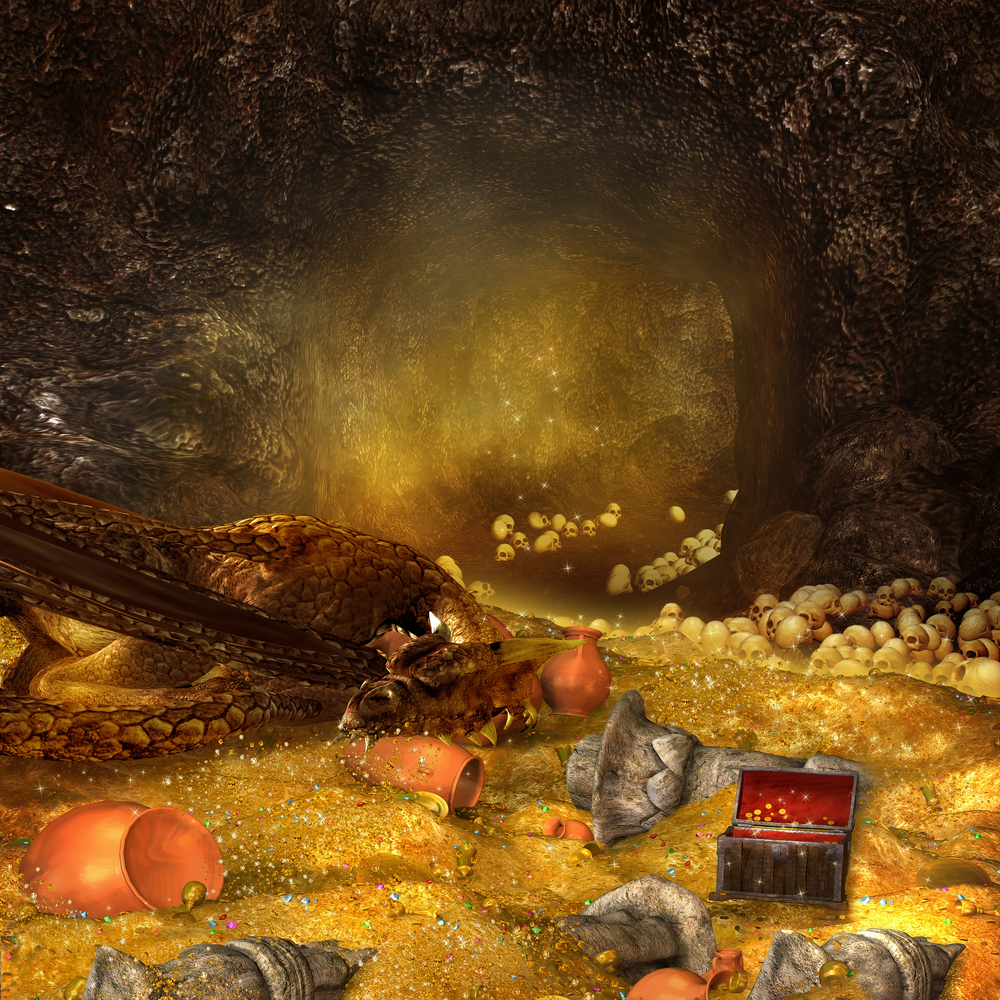
Treasure Chambers are often opened by keys in Dungeons and Dragons
Treasure chambers are certain to be locked. As are treasure chests themselves. While the keys to chests are often long lost by the time dungeon delvers arrive on scene the keys to treasure chambers themselves are usually around the dungeon somewhere. Rarely are keys like these lost for long. Someone will almost certainly recognize the value of such a key quickly upon discovery. Such a key is a treasure even if it has not intrinsic value of it’s own.
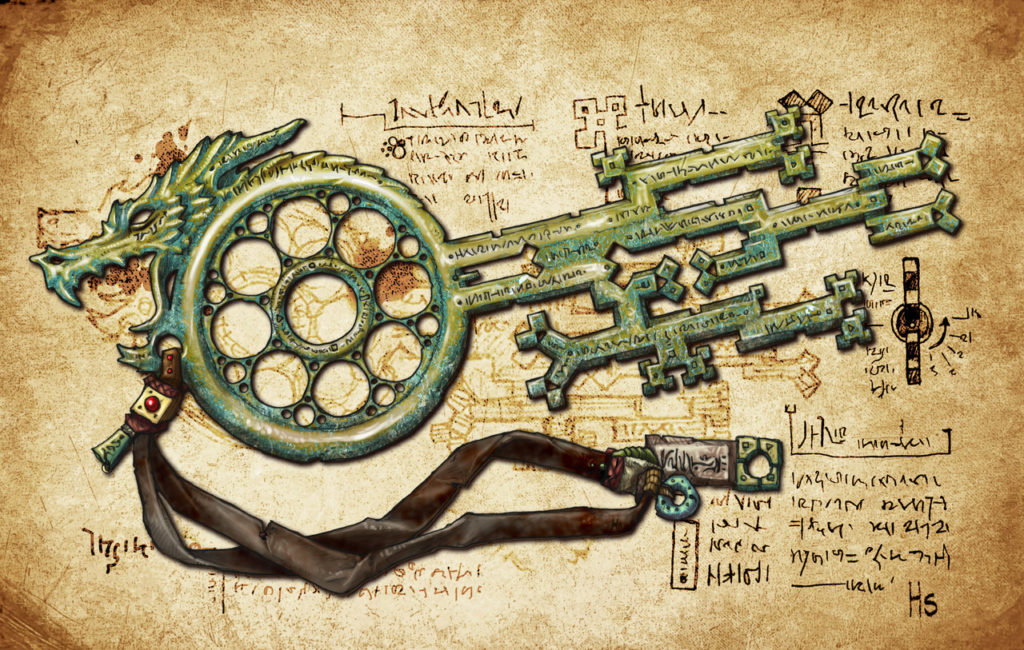
Magical keys could be found by adventurers
There is no reason why a key could not have magical properties all of it’s own. Perhaps it will aid in the picking of locks. Or perhaps it will have a percentage chance of opening any door it is placed in. The key might be some ancient relic from a long dead civilization.
Such a key might lower a force field blocking an arch or guarding the top of a pedestal. It might also be used to lower water in some area of a dungeon or raise portcullis in parts of the dungeon.
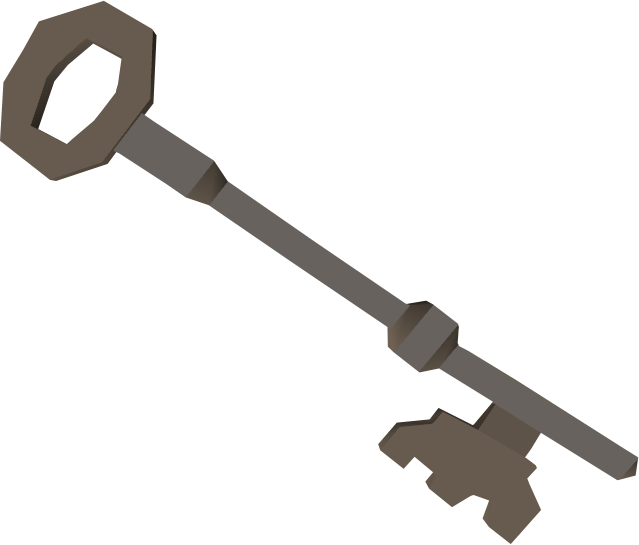
Keys in Dungeons and Dragons are not always found in one piece
Sometimes pieces of keys will be found by adventurers. Putting these keys back together in the proper order is a puzzle all of it’s own. Finding all of the necessary pieces is essential. But will the adventurers know when they have the last piece?
Scattering such pieces of a key throughout a dungeon creates a sense of treasure each time one is found even though the key itself may be worth nothing once the dungeon is explored. A key could be in just a few pieces or perhaps many. The pieces might fit easily together or could have to be secured together in some manner.
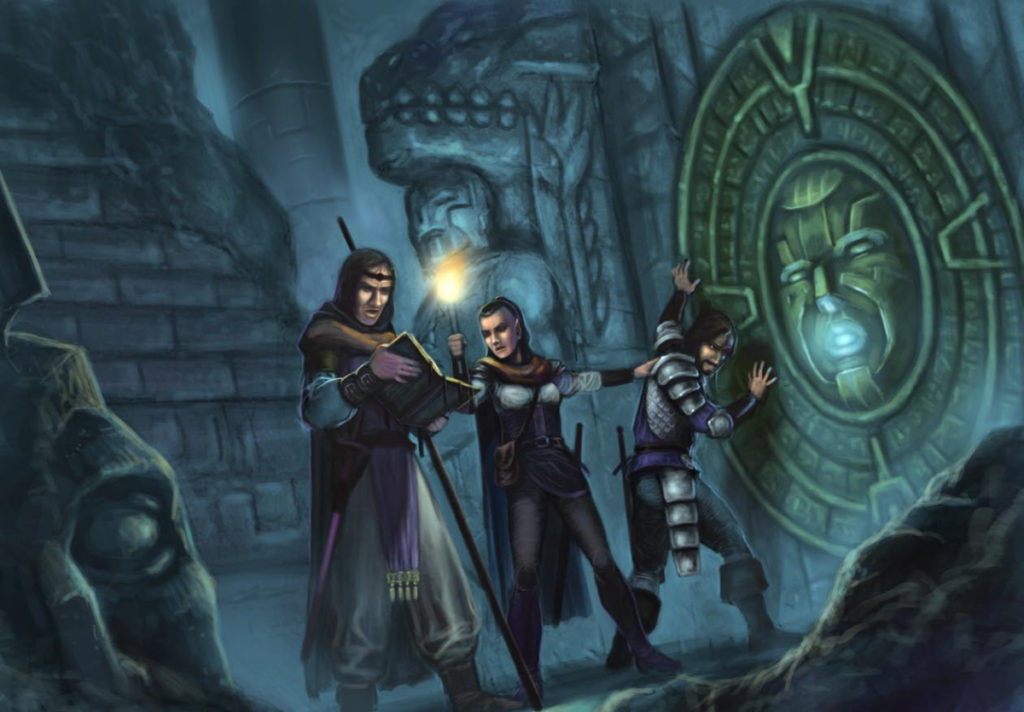
Keyholes are not always obvious
While one expects a door or a chest to have a key hole things are not always so clear in a dungeon environment. Sometimes the designer of such places has reason to hide the keyhole. Perhaps the door itself is secret. Perhaps the door itself is somewhere else entirely. Some possible places one might find an unusual keyhole include:
- Inside of a statue’s ear (or idol)
- In a fresco or painting
- In a crack in the wall
- In the eye of a statue or idol
- In a stair on a dark staircase
- In the side of a door (the narrow portion)
- In the basin of a fountain
- On the top of a pedestal
- In a column or pillar
- Under the fiery coals in a brazier
- In a torch sconce
- In a crack in the cobblestone floor
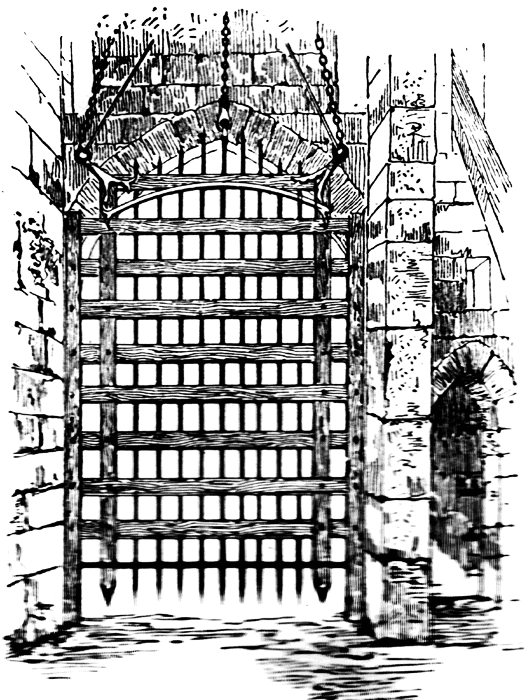
Sometimes keys make things happen elsewhere in a dungeon
The turning of a key does not always open a door. Sometimes things happen elsewhere in a dungeon once a key is turned. Some possibilities for this:
- A low rumbling is heard elsewhere in a dungeon
- A secret door or passage is opened somewhere else
- Areas are flooded by the turn of the key
- Monsters are released from caged areas because of the key turn
- Stairs might be lowered or raised somewhere in the dungeon
- Exits might be closed because of the turning of a key
- Portcullis or stone blocks might close off exits or areas of a dungeon due to a key turn
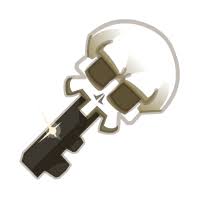
Skeleton Keys in the Dungeon
Skeleton keys could be used to open any door in a dungeon or adventure. Such a key might be made of real bone. It would likely be in the possession of some undead creature. Perhaps even the boss of a dungeon might possess it. The key might even have nasty side effects from use.
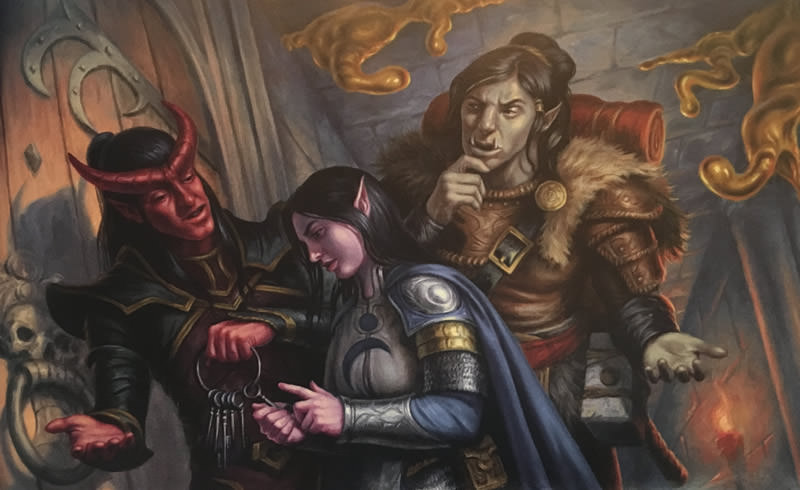
Dungeon Masters should consider using keys in Dungeons and Dragons
Placing keys in a dungeon should be carefully considered. Some keys should just be a red herring. It will confuse players to find a key and never find keyholes needing it. Some keys should be useful. And others should cause nasty traps to be set off. Keys will add an old school flavor to your adventures which will be remembered by your players forever.
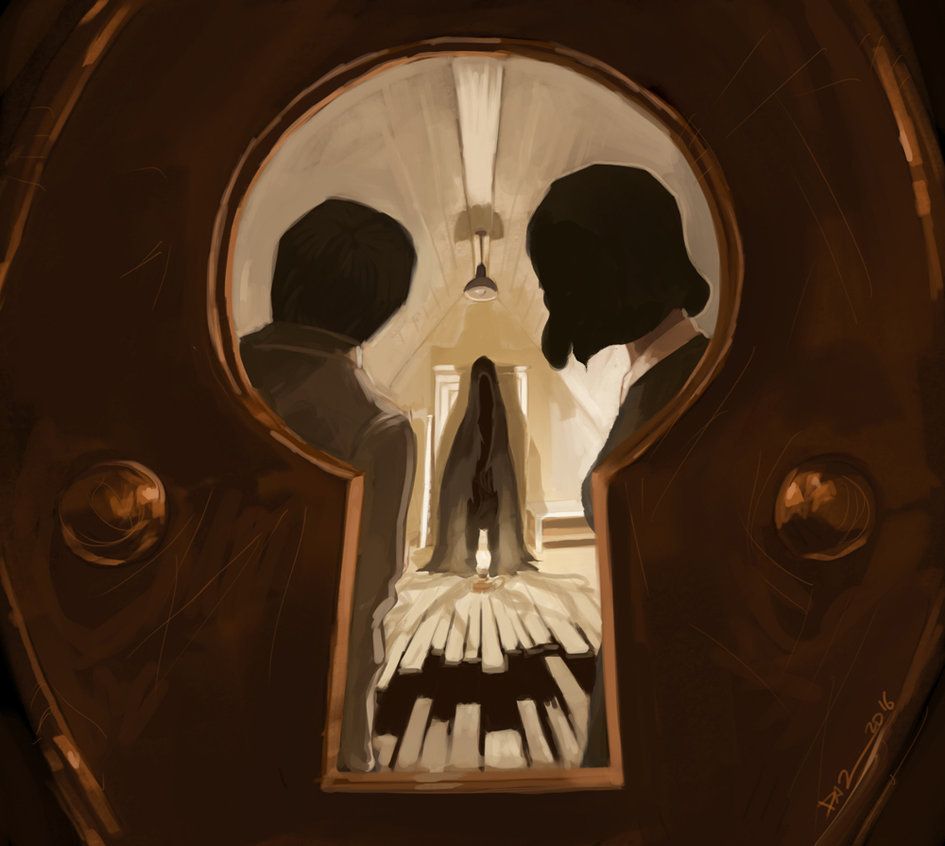
If you enjoyed this article then you might enjoy these:
- Traps in Dungeons and Dragons
- Torture Devices
- Sieges in Dungeons and Dragons
- The Tax Man
- Illusions Part one
- Illusions Part Two
- Psionics in Dungeons and Dragons
- Tricks, Emptry Rooms and Basic Trap Design Review
- Warfare in Dungeons and Dragons
- Weather in Dungeons and Dragons
- Omens and Prophecies
